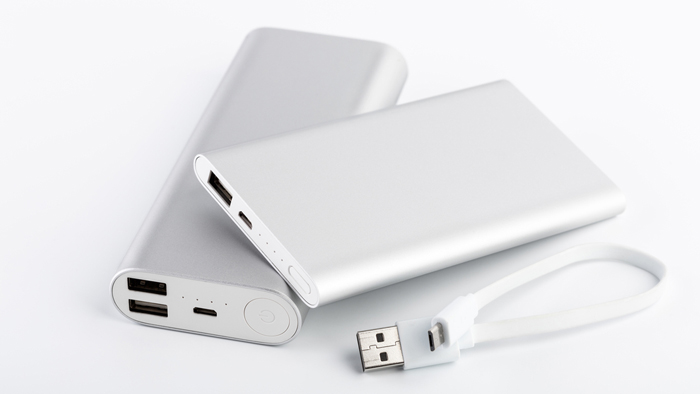
There are many types of charging electronics on the market and it makes sense that there are so many as we have many devices that require recharging. However, when it comes to the most used type of charging electronics, such as wall chargers, then you’re not really going to be free with charging your devices as they have to be connected to a power source at all times. One of the best solutions to charging your smartphone, tablet or even a laptop is using a portable charger. Portable chargers are also known as power banks, and they have batteries within them that allow you to charge your devices while you’re on the move.
That said, there are so many power banks on the market, so it can be difficult to know what types of power banks to get and what exactly you should look for when it comes to purchasing a power bank. So let’s take a look at what you’ll need to know to get the best power bank for yourself.
Power Capacity and Size
The power capacity of a power bank is the main part of what makes it a portable charger in the first place. Knowing what the best power banks to buy is vital. Something that’s important to know is that depending on how much power capacity is within a power bank, you’re going to have a different experience.
If you want the portable power that’s going to last you a longer duration of time, then getting a high capacity power bank is a good idea. What’s considered to be a high capacity? A high capacity power bank is one that has 20,000mAh capacity or higher, and that allows you to charge your smartphone or even larger devices with larger batteries to full power multiple times over. Another thing to consider is just how many ports you’d like with a high capacity power bank as most of them have two or more USB charging ports and that means you can charge many devices at once while you’re on the move.
As awesome as high capacity power banks sound, they do have a flaw and that would be that they have larger sizes and weigh heavier than power banks that have lower power capacities. The reason for that is because they use more batteries, so you should be prepared for noticing that you are indeed carrying around a portable charger.
Another power bank that’s basically the opposite of high capacity power banks is low capacity ones. Low capacity power banks are ones that are the most known as they have very small sizes and lightweight. Most of these chargers only use a single battery and therefore the size of them is also small. However, even though these very small power banks can practically go with us anywhere, they don’t have too much power when it comes to their charging and also power capacity to provide to the device that you’re charging.
Most Mini power banks only have a 3,000mAh to 5,000mAh power capacity and that means they can really only charge a smartphone about one time. Another thing is that most mini power banks only have a single port, so you can only charge a single device at a time, the charging power with that single port is quite weak as well.
Charging Tech
Charging has changed over time, and the type of charging electronic product that we use to charge our devices is important. Most of all, the charging tech that’s used with our portable charger is the most important factor to take in.
The most well-known charging tech that’s used with many portable chargers and basically all charging electronics is Quick Charge. Quick Charge is compatible with many Android devices as many of them use the Snapdragon processor. Quick Charge is able to increase the voltage during charging and that makes the charging speed constant.
The one other charging tech that’s spreading widely and is more the standard of fast charging is USB-C Power Delivery. Most new Android smartphones are now using USB-C as it’s able to offer faster base charging. Power Delivery is even faster than that as it’s able to give up 100W of power. There are already some larger devices that use Power Delivery such as the new MacBooks models and also Chromebook models too. Some smartphones also use Power Delivery, and since larger and smaller devices are able to use the same charging tech, it means that you're able to use the same USB-C Power Delivery Wall Charger to charge your smartphone and laptop.
Gone, will be the days where you have to use a larger power brick charger for your laptop that day is basically here. You just have to purchase the right products.